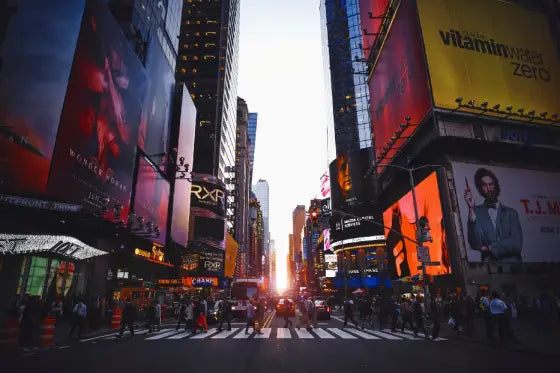Psychology: Culture Shock
The New York
Understanding culture shock and its causes can prepare you for the syndrome. Everyone is prone to culture shock because all people have underlying expectations of other people being similar and sharing the same values, beliefs, and behaviors (Macionis, 2011). As a result of this expectation, a person confronting a counter cultural situation, such as visiting a large city for the first time, will experience culture shock.
Culture shock manifests in a number of ways such as fear, loathing, a strong homesickness, even anger, but it is important to understand these feelings are a psychological reaction and temporary. Knowing these facts can reduce the impact of the culture shock through recognition and controlling the urge to feed the negative emotions.
One of the most important aspects of recognizing culture shock is knowing it is not isolated to visiting foreign countries. People can experience culture shock anywhere they are visiting if the place is counter to their own culture such moving from a small town to a large city. When a person moves from a rural area to a large city, they are entering a place that will likely have customs and norms different than a rural area. Changes in formalities such as people in cities not saying, “hello” when passing each other on the street can form the basis of culture shock. There are many small differences that can increase the chance of culture shock such as living in close proximity with neighbors and increased levels of noise.
Culture Shock
People from New York take very seriously the idea of New York possessing the biggest and the best (no matter what the topic!) Criticizing something as innocuous as the way New York’s roads are designed can create a huge negative reaction from New Yorker's. (At the minimum, a long discourse about New York roads.) This problem extends to language issues in which people in New York are often abrupt in their speech (seemingly rude), but they are just talking fast or trying to get to the point. This probably has developed from living in a busy metropolis. Understanding this language pattern as culture shock allows one to cope with it better.
The values and norms of people in the city are also very different. For instance, when one first arrives in the city it is easy to be put off by the seeming rudeness of people. At first, one is inclined to think that everyone is uncaring, but this is a myth that popular culture and media has perpetuated. On 9/11, people from all over New York came to ground zero and local shops and stores freely handed out water and beverages as fellow New Yorker's worked to find survivors in the rubble. An incident such as this shows how the norms and values of New Yorker's might be different but not malevolent or uncaring in nature. Understanding this about the culture helps to alleviate culture shock as well as forming biases.
References
Culture shock. (2013). Retrieved from http://www.arcadia.edu/abroad/default.aspx?id=6001
Macionis, J. J. (2011). Society: The basics (11th ed.). Upper Saddle River, NJ: Pearson Prentice Hall.
~Citation~
Triola Vincent. Mon, Feb 01, 2021. Culture Shock: New York Retrieved from https://vincenttriola.com/blogs/ten-years-of-academic-writing/culture-shock-new-york
